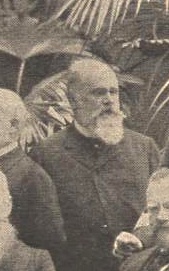Hermann von Stengel on:
[Wikipedia]
[Google]
[Amazon]
 Hermann Guido Leopold Freiherr von Stengel (19 July 1837 – 1919) was a
Hermann Guido Leopold Freiherr von Stengel (19 July 1837 – 1919) was a
''Die Grundentlastung in Bayern''
Würzburg, 1874
Biographical data
* *
 Hermann Guido Leopold Freiherr von Stengel (19 July 1837 – 1919) was a
Hermann Guido Leopold Freiherr von Stengel (19 July 1837 – 1919) was a Bavaria
Bavaria ( ; ), officially the Free State of Bavaria (german: Freistaat Bayern, link=no ), is a state in the south-east of Germany. With an area of , Bavaria is the largest German state by land area, comprising roughly a fifth of the total lan ...
n administrator, a German
German(s) may refer to:
* Germany (of or related to)
** Germania (historical use)
* Germans, citizens of Germany, people of German ancestry, or native speakers of the German language
** For citizens of Germany, see also German nationality law
**Ge ...
politician
A politician is a person active in party politics, or a person holding or seeking an elected office in government. Politicians propose, support, reject and create laws that govern the land and by an extension of its people. Broadly speaking ...
and Finance Minister
A finance minister is an executive or cabinet position in charge of one or more of government finances, economic policy and financial regulation.
A finance minister's portfolio has a large variety of names around the world, such as "treasury", ...
of the German Empire from 1903 to 1908.Early life
He was born inSpeyer
Speyer (, older spelling ''Speier'', French: ''Spire,'' historical English: ''Spires''; pfl, Schbaija) is a city in Rhineland-Palatinate in Germany with approximately 50,000 inhabitants. Located on the left bank of the river Rhine, Speyer li ...
, Electorate of the Palatinate
The Electoral Palatinate (german: Kurpfalz) or the Palatinate (), officially the Electorate of the Palatinate (), was a state that was part of the Holy Roman Empire. The electorate had its origins under the rulership of the Counts Palatine of ...
, on 19 July 1837, and baptized two days later. Hermann was the son of Carl Albert Leopold von Stengel and Julia Magdalena Catharina Franziska von Mayer. Political career
After studying law, he entered into the civil service of Bavaria. In 1874, he became government assessor inWürzburg
Würzburg (; Main-Franconian: ) is a city in the region of Franconia in the north of the German state of Bavaria. Würzburg is the administrative seat of the ''Regierungsbezirk'' Lower Franconia. It spans the banks of the Main River.
Würzburg ...
. In 1881 he was made ministerial council, and as such authorized deputy of the Bundesrat in Berlin
Berlin ( , ) is the capital and List of cities in Germany by population, largest city of Germany by both area and population. Its 3.7 million inhabitants make it the European Union's List of cities in the European Union by population within ci ...
. He exercised this office until he was appointed State Council sixteen years later.
On 23 August 1903, he was appointed as a successor to Max Franz Guido von Thielmann as Finance Minister
A finance minister is an executive or cabinet position in charge of one or more of government finances, economic policy and financial regulation.
A finance minister's portfolio has a large variety of names around the world, such as "treasury", ...
of the German empire. In the years that followed, there was a steady deterioration of the empire's finances that developed into a constant, structural crisis. The Fleet Acts of 1898 and 1900, employment of German troops during the Boxer Rebellion in China, the expansion of the army
An army (from Old French ''armee'', itself derived from the Latin verb ''armāre'', meaning "to arm", and related to the Latin noun ''arma'', meaning "arms" or "weapons"), ground force or land force is a fighting force that fights primarily on ...
in 1893, 1899 and 1905 by as many as 613,000 men, and the increase in military pensions, all had to be financed.
Pressured by the increasing costs of armament, he developed a measure in 1906 that undermined the existing federal system, and instituted a country-wide inheritance tax, in addition to higher excise
file:Lincoln Beer Stamp 1871.JPG, upright=1.2, 1871 U.S. Revenue stamp for 1/6 barrel of beer. Brewers would receive the stamp sheets, cut them into individual stamps, cancel them, and paste them over the Bunghole, bung of the beer barrel so when ...
taxes. Yet the measures were not able to achieve the desired results, so the German empire's debt of 3 billion marks
Marks may refer to:
Business
* Mark's, a Canadian retail chain
* Marks & Spencer, a British retail chain
* Collective trade marks, trademarks owned by an organisation for the benefit of its members
* Marks & Co, the inspiration for the novel ...
in 1904, grew to 4 billion in 1908 (equivalent to billion and billion euros). On 20 February 1908, he was replaced as Finance Minister by Reinhold Sydow.
Publications
*''Die Grundentlastung in Bayern''
Würzburg, 1874
Orders and decorations
*Mecklenburg
Mecklenburg (; nds, label= Low German, Mękel(n)borg ) is a historical region in northern Germany comprising the western and larger part of the federal-state Mecklenburg-Western Pomerania. The largest cities of the region are Rostock, Schweri ...
: Grand Cross of the Order of the Griffon, ''23 May 1906''
Sources
*Biographical data
* *
References
1837 births 1919 deaths People from Speyer People from the Palatinate (region) Finance ministers of Germany Government ministers of Germany {{Germany-politician-stub